Peace in the Spotlight
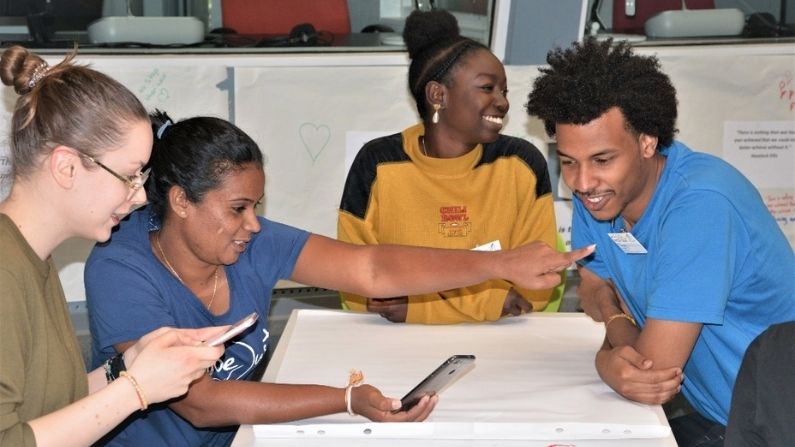
8-12 April 2019
The idea
These two topics were identified by young volunteers – members of the Peace Messengers network as the most pressing and important topics to address when talking about peacebuilding.
The Peace-Messengers therefore wanted to learn about the refugee rights together with young refugees, and to prepare jointly educational projects which would address the topics of peace, gender and the refugee rights.
The project aimed to:
1
Build a common understanding of the concept of peace and peace building including the threats to peace in Europe
4
Explore different challenges young refugees are experiencing in Europe and how Peace and Human Rights Education can address them.
2
Provide information and tools to young people so that they can act as peace messengers.
5
Support participants in designing follow up action as peace messenger by providing tools for campaigning, education and other activities.
3
Reflect on gender issues in peacebuilding and in the local context
1
Build a common understanding of the concept of peace and peace building including the threats to peace in Europe
2
Provide information and tools to young people so that they can act as peace messengers.
3
Reflect on gender issues in peacebuilding and in the local context
4
Explore different challenges young refugees are experiencing in Europe and how Peace and Human Rights Education can address them.
5
Support participants in designing follow up action as peace messenger by providing tools for campaigning, education and other activities.
The activities
The project was divided into two activities:
Study Session
The study session allowed exchange of knowledge and expertise between the two teams especially in: 1) securing that the peacebuilding work of SCI includes young refugees and it is done with young refugees 2) opens space for young refugees to engage on topics of human rights and gender equality with a volunteering organisation 3) provides new educational tools for the Peace Messengers network to address gender issues and refugee rights on different volunteering camps.
Follow-up Actions
All over Europe, 2019
During the study session, some discussion took place on follow-up projects the participants could implement based on what they had learned and discussed within the week. Many ideas were shared during the last days of the study session, and some ideas have been implemented by participants back to their countries.
Resources
Peace in the Spotlight video
During the creative session of the training course, participants developed a video presenting some of the challenges for refugees coming into Europe.
Partners and Supporters
The Branching Out project was realised in collaboration with Voice of Young Refugees in Europe (VYRE).
VYRE was founded by young refugees in the effort to unify and strengthen the voice of individual young refugees and refugee organisations in Europe. They support refugee youth through organising capacity building events and advocating for positive change. They are part of the Council of Europe Advisory Council, representing young people and discussing youth policy.
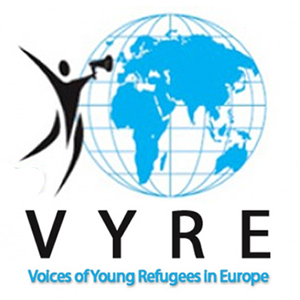
Peace in the Spotlight was supported by the Strasbourg European Youth Centre of the Council of Europe.
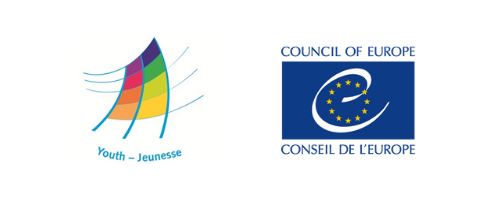
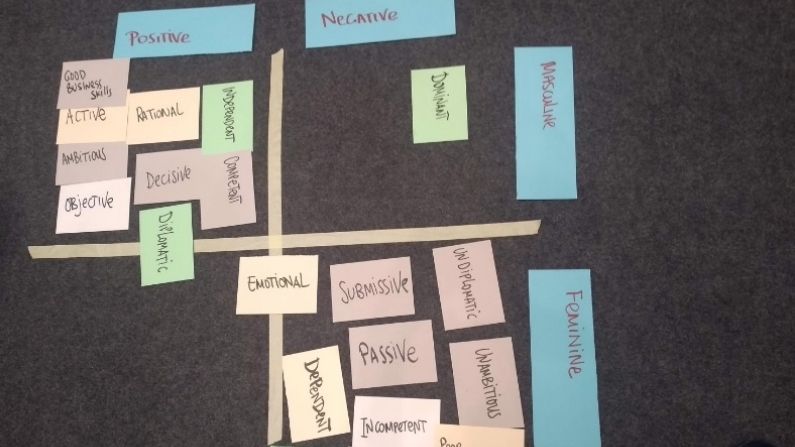
Peace in the Spotlight Study Session
The activity gathered 27 participants; they got to know the Council of Europe’s work on human rights education to promote gender equality and social inclusion of refugees. Based on the Compass manual, they developed different proposals for workshops which can be applied in youth clubs, schools and youth organisations as well as smaller videos campaigning for human rights of refugees.
The study session was an intensive week with a lot of reflection on the themes of peace, refugees and gender. The highlight of the study session was the participants’ motivation to (also) take concrete action on gender equality or inclusion of refugees. Considering the number of planned follow-up projects this has been reached. Many learning moments were created through the programme, which was organised in a participatory way providing the know-how from both organisations – partners. By non-formal education methods, the participants gained new insights and were actively involved in discussions and their own learning process.
During the last two days of the study session the participants were working on follow-up projects. This process did not stop when the study session was over: the participants were asked to send their project plans to the course-director. In total, eight detailed project-plans were identified, monitored and in some cases have already been implemented.
The programme of the study session included different topics such as volunteering, peacebuilding, gender equality and refugee rights, allowing enough space for the discussions and reflections. Many questions were raised, with a wide variety of follow-up project ideas arising. In the end, the participants reflected how they or their organisations could provide solutions for the different issues discussed during this study session.
I really enjoyed being part of it and discussing different topics and learning new things from such a diverse group as we were.
Read the experience of a participant to the study session.
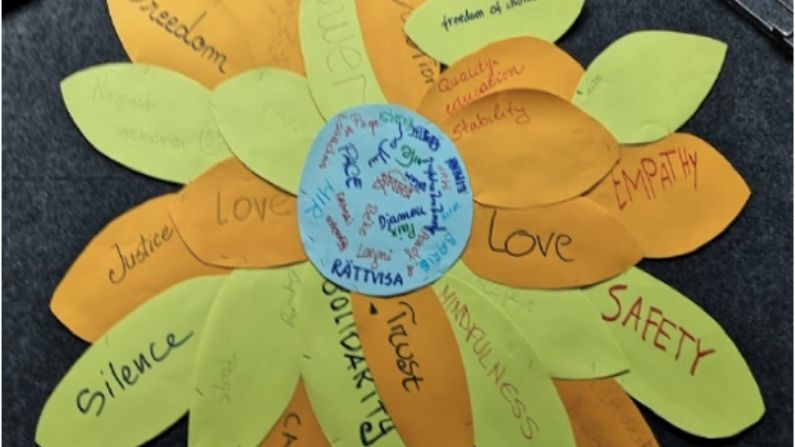
Follow-up activities
After the study session, 8 follow-up activities have been implemented.
Community Project
Eamonn held participatory trainings and education events for the marginalised youth of Bridport, particularly the youths living in Skillin which is an estate that is currently gentrifying. The activities were given through a perspective of critical pedagogy and pedagogy of the oppressed. The intention was to assist youth in engaging with the existing structures in the town and to create/manage structures of their own. The project was implemented with different partners and funders, including businesses; charities; governmental and education institutions; and youth organisations. A good working relationship with local groups was established to get this project up and running.
Workshop on accepting cultural difference through intercultural dialogue
Florida delivered a workshop entitled ‘Changing our communities by accepting our cultural difference through intercultural dialogue activities’, working with 15 young people from different ethnicities who live in the city of Klina, Kosovo. The purpose was to bring the youth together to exchange and interact with each other through entertaining and interactive activities. The young people would then have the change to have further follow-up activities themselves that would consist of art instillations or events, environmental activities or cultural activities.
Human Rights Workshop
Arta organised a workshop focused on human rights split into three distinct parts. The first session consists of a game where the youths (all coming from different local communities) get to know each other deeper and more clearly. The second session asks questions on whether participants agree with certain statements/topics based on a Compass activity – Electioneering: https://www.coe.int/en/web/compass/electioneering. The third section provides more information and discussion on human rights and the people working for human rights based on the Fighters for Rights activity (https://www.coe.int/en/web/compass/fighters-for-rights). The objective of the workshop was for the participants to meet and get comfortable with each other, as well as encourage co-operation, open-mindedness and further action.
Looking at Gender with youths from different backgrounds
Matilda wanted to work with youths from different backgrounds, aged from 10 – 20 years, who would come from Roma communities, Egyptian communities, rural areas, were at risk of trafficking, the LGBTQI+ communities, or/and have social and economic obstacles in Albania. She wanted to increase awareness about double discrimination in Albania, use sport as a tool in order to break taboos on gender in Albania and building bridges between different vulnerable youth groups. She designed a football game for gender equality, a workshop that would be an information session on gender equality, and a study visit to the Roma community organisation, allowing ESC volunteers to visit and get to know more about the gender roles within the community.
Academy of Junior No Hate Speech Activists
Merushe looked to work with young people from the Balkans to break down stereotypes, prejudices and fight against hate speech. The objective was to learn about Hate Speech online, as well as offline, and how to create counter narratives. This would raise awareness in the youth aged 16-25 years and would be planned over 5 days using different non-formal and human rights education methods.
Train the Trainers in Diversity (Human Rights, Gender and Refugees)
Petra trained 10-15 psychology students (volunteers) who would become facilitators or trainers of intercultural and gender sensitive workshops delivered to high school students and employees at multi-national companies in Hungary. The workshops would focus on gender and ethnicity related issues, with short trainings being given a few times to the students and longer, one day trainings offered for the employees. The activities would include games on micro-aggressions, information on gender unicorn, information on privilege (including the game take a step forward) and provide toolkits/materials for further learning and activities.
The Bright Side of the Moon
Lediona wanted to work on an international project between Albania, Turkey, France and Germany where several short documentaries would be realised in every country. These documentaries would bring focus to the (successful) lives of some immigrants and refugees. The documentaries would look at migration; discrimination and intolerance; as well as citizenship and participations. The documentaries would be created by young film crews (directors, cinematographers, editors, etc) with some background in migration. The aim was to encourage activism in a creative way and to promote solidarity with the target audiences, including locals who may not have been in touch yet with this part of immigrant/refugee’s life.
Together you are never alone
Rudi’s proposal wanted to support the access to studies and education for exiled students (students which have been exiled from their countries for political, economic, humanitarian or climate reasons). The project team would work on a booklet that would present the key information and services regarding the French (higher) education system and student’s services available in Arabic, English and French. There would be three workshops offered in Paris, informing students about their rights, explaining the French system, helping them to prepare and showing resources they could use and then distributing the guide. A website would also be created with all this information included for those students (or potential students) who won’t have access to the info sessions.

